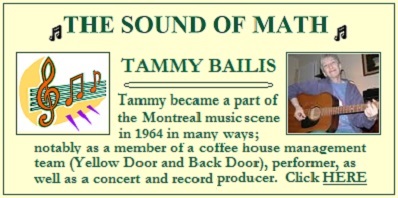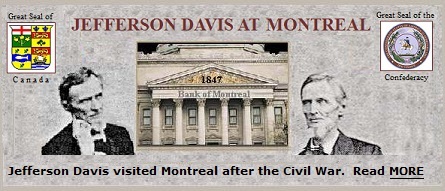


|
We have all heard the haunting melody of ~Taps~. It's the song that gives us that lump in our throats and usually tears in our eyes. But do you know the story behind the song? If not, I think you will be pleased to find out about it's humble beginnings. Reportedly, it all began in 1862 during the Civil War, when Union Army Captain Robert Ellisombe was with his men near Harrison's Landing, Virginia. The Confederate Army was on the other side of the narrow strip of land. During the night, Captain Ellisombe heard the moans of a soldier who was severely wounded on the field. Not knowing if it was a Union or Confederate soldier, the Captain decided to risk his life and bring the stricken man back for medical attention. Crawling on his stomach through the gunfire, the Captain reached the stricken soldier and began pulling him toward the encampment. When the Captain finally reached his own lines, he discovered it was actually a Confederate soldier, but the soldier was dead. The Captain lit a lantern and suddenly caught his breath and went numb with shock. In the dim light he saw the face of the soldier. It was his own son. The boy had been studying music in the South when the war broke out. Without telling his father, the boy enlisted in the Confederate Army. The following morning, heartbroken, the father asked permission to give his son a full military burial despite his enemy status. His request was only partially granted. The Captain had asked if he could have a group of Army band members play a funeral dirge for his son at the funeral. The request was denied, since the soldier was a Confederate. But, out of respect for the father, they did say they could give him one musician. The Captain chose a bugler. He asked the bugler to play a series of musical notes he had found on a piece of paper in the pocket of the dead youth's uniform. This wish was granted. The haunting melody which we now know as "Taps" used at military funerals was born. The words are: Gone the sun From the lakes From the hills From the sky All is well, safely rest God is nigh. Fading light Dims the sight And a star Gems the sky Gleaming bright From afar Drawing nigh Falls the night. Thanks and praise For our days Neath the sun Neath the stars Neath the sky As we go This we know God is nigh. On June 27, 1862 during the early days of the Civil War, soldiers of the 83d Pennsylvania Volunteers began to fall to left and right during the battle at Gaines' Mill, Virginia. At a critical moment of the battle when the flag was in peril, Brigadier General Daniel Adams Butterfield rushed forward to secure the flag and encourage the embattled troops to renewed valor. For his own valor, General Butterfield was awarded the Medal of Honor. During the Peninsula Campaign of that same year, General Butterfield with assistance from his bugler Oliver Norton, wrote a song that became known as taps. Originally used to signal the close of day and time for the troops to put out the lights for the night, "Taps" became a soldier's salute to his fallen comrades. Today it is not only played during ceremonies to lower the flag at days end, but is used in military funerals as the final salute of the living to those who have served and passed on "into the night". Excerpted from: http://www.homeofheroes.com/moh/memory/taps.html During the Civil War, in July 1862 when the Army of the Potomac was in camp, Brig. Gen. Daniel Butterfield summoned Pvt. Oliver Wilcox Norton, his brigade bugler, to his tent. Butterfield, who disliked the colorless "extinguish lights" call then in use, whistled a new tune and asked the bugler to sound it for him. After repeated trials and changing the time of some notes which were scribbled on the back of an envelope, the call was finally arranged to suit Gen. Butterfield and used for the first time that night. Pvt. Norton, who on several occasions, had sounded numerous new calls composed by his commander, recalled his experience of the origin of "Taps" years later: "One day in July 1862 when the Army of the Potomac was in camp at Harrison's Landing on the James River, Virginia, resting and recruiting from its losses in the seven days of battle before Richmond, Gen. Butterfield summoned the writer to his tent, and whistling some new tune, asked the bugler to sound it for him. This was done, not quite to his satisfaction at first, but after repeated trials, changing the time of some of the notes, which were scribbled on the back of an envelope, the call was finally arranged to suit the general. "He then ordered that it should be substituted in his brigade for the regulation "Taps" (extinguish lights) which was printed in the Tactics and used by the whole army. This was done for the first time that night. The next day buglers from nearby brigades came over to the camp of Butterfield's brigade to ask the meaning of this new call. They liked it, and copying the music, returned to their camps, but it was not until some time later, when generals of other commands had heard its melodious notes, that orders were issued, or permission given, to substitute it throughout the Army of the Potomac for the time-honored call which came down from West Point. In the western armies the regulation call was in use until the autumn of 1863. At that time the XI and XII Corps were detached from the Army of the Potomac and sent under command of Gen. Hooker to reinforce the Union Army at Chattanooga, Tenn. Through its use in these corps it became known in the western armies and was adopted by them. From that time, it became and remains to this day the official call for "Taps." It is printed in the present Tactics and is used throughout the U.S. Army, the National Guard, and all organizations of veteran soldiers. Gen. Butterfield, in composing this call and directing that it be used for "Taps" in his brigade, could not have foreseen its popularity and the use for another purpose into which it would grow. Today, whenever a man is buried with military honors anywhere in the United States, the ceremony is concluded by firing three volleys of musketry over the grave, and sounding with the trumpet or bugle "Put out the lights. Go to sleep"...There is something singularly beautiful and appropriate in the music of this wonderful call. Its strains are melancholy, yet full of rest and peace. Its echoes linger in the heart long after its tones have ceased to vibrate in the air." Excerpted from: http://www.arlingtoncemetery.org/ceremonies/originoftaps.html  A few years ago, a friend visited the Netherlands American Cemetery and Memorial in the village of Margraten, about six miles from Maastricht. There lie buried 8,301 American soldiers killed in the battles to liberate Holland in the fall and winter of 1944-5. Sgt. Bill Dukeman, 101st Airborne Division, 506th Parachute Infantry Regiment, Second Battalion, Company C (of "Band of Brothers fame) is buried there. He was killed in the battle of "The Crossroads" in northern Holland. The Dutch hold an annual memorial concert every September at the above cemetery to remember and honor the Americans who died to free them in Operation Market Garden and subsequent efforts to eject the German army from Holland. Sgt. Dukeman, like many other fallen GIs, was "adopted" by a Dutch family. Dukeman's family in the States was contacted and hosted in Holland, and his grave site decorated each year by his Dutch "family." They keep his portrait in their home, displayed in a place of honor. Fathers pass this obligation down to their sons in Holland. This version of the original "taps" music is played by a 13 year old Dutch girl named Melissa Venema. The conductor of the orchestra is Andre Rieu from Holland . Many of you may never have heard taps played in its entirety . The original version of Taps was called Last Post, and was written by Daniel Butterfield in 1801. It was rather lengthy and formal, as you will hear in this clip, so in 1862 it was shortened to 24 notes and re-named Taps. Melissa Venema is playing it on a trumpet whereby the original was played on a bugle. Watch at this site, and go full screen: https://youtu.be/oakAzf2dx9o?list=PLlmM-KRo6hHHFLaIS0oZ0XwIP-pIRCyTG (Note: This is not exactly "Taps", but there is a link at the top of this page for a WAV File of the song) |

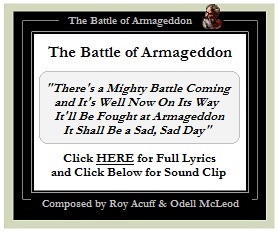
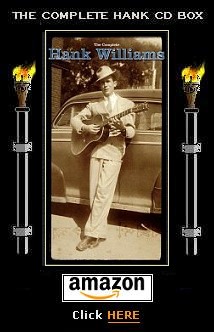
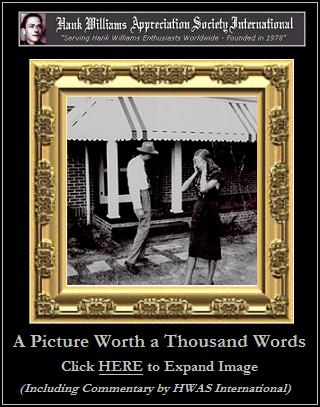


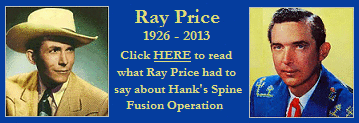
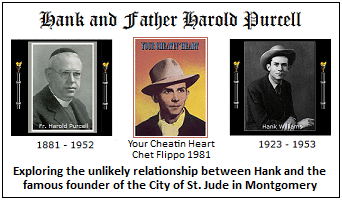


 Click
HERE for UPDATES on Hank's 50th Anniversary events in Germany
Click
HERE for UPDATES on Hank's 50th Anniversary events in Germany Click
HERE and view a Photo of above mentioned German 'Hank' Event
Click
HERE and view a Photo of above mentioned German 'Hank' Event
 Click HERE and read: "MY FASCINATION FOR HANK WILLIAMS" written
Click HERE and read: "MY FASCINATION FOR HANK WILLIAMS" written  Click
HERE to view a 2013 Photo of Mr. Reinhardt receiving a certificate
Click
HERE to view a 2013 Photo of Mr. Reinhardt receiving a certificate Click HERE to view our collection of RARE HANK WILLIAMS POSTERS & HANDBILLS
Click HERE to view our collection of RARE HANK WILLIAMS POSTERS & HANDBILLS







